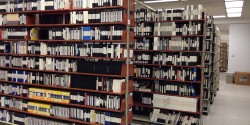The work of media history serves to not only enrich our understanding of the past and of the everyday use of communications technologies, but it also offers helpful methods and frameworks for making sense of new technological developments and new uses and practices. A number of scholars have tempered the revolutionary claims of newness that often accompany new media and new technologies, rightfully contributing historical context (A few book-length examples include Residual Media, Acland 2007; Rethinking Media Change, Thorburn and Jenkins, 2004; and Always Already New, Gitelman, 2006).
As radio continues to evolve and adapt in the digital age, the history of this medium and its uses remain an ever important field to consider. This new Radio Survivor Academic Series serves to profile and highlight historical research in Radio Studies and in related fields such as Media Studies, Cultural History, Media Theory, and Sound Studies. Contemporary studies of radio that are informed by history or historical methods will also find their way into this series.
I’ll be writing about my own research in radio history, but more importantly I’ll be profiling the work of other academics and practitioners who research and write about radio. I’ll be looking to share other radio-related information such as interviews, book and article reviews, and calls for conference and journal articles.
As well, this series will post updates from the Radio Preservation Task Force (Radio Survivor is an online partner), which is just about to hit a big deadline this November 1st when an international team of researchers will be reporting back on their initial radio and radio-related archival findings.
I have been in contact with a number of university archives in Toronto and Southwestern Ontario and have located some great archival holdings including reel-to-reel sound recordings of the first four International Teach-Ins held at Varsity Stadium at the University of Toronto in the 1960s (big thanks to Marnee Gamble at the University of Toronto Archives and Records for locating and providing me with the information for these recordings).
Topics of these Teach-Ins range from the Vietnam War (“Revolution and Response,” 1965) and “Religions and International Affairs” (1967). These programs were originally aired as three day programs by the Canadian Broadcasting Corporation (CBC) and were produced by CJRT at Ryerson Polytechnical Institute. I’ve started my search for archival materials with universities in order to find recordings that showcase the educational uses of radio and partnerships between educational institutions and broadcasters.
As this project progresses, I look forward to sharing many more archival sources that are found by our team of researchers and archivists. If you have any suggestions for this series or if you would like to direct my attention to something of interest within the larger topic of radio history, please be in touch.



